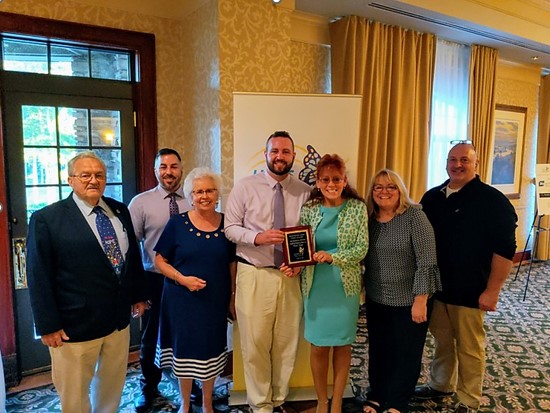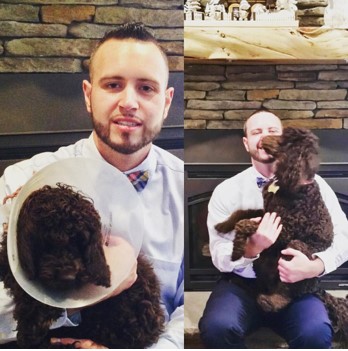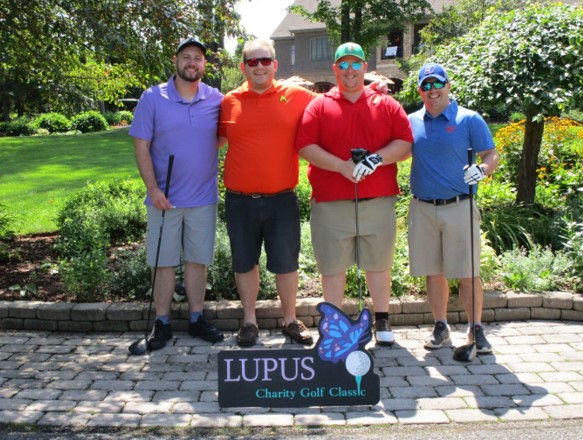Session Information
Date: Sunday, November 12, 2023
Title: Patient Perspectives
Session Type: Patient Perspectives
Session Time: 4:00PM-5:00PM
Background/Purpose: In 2006, I realized I was gay and identified as LGBTQIA but did not come out. In 2008, I began experiencing chronic widespread pain, fatigue, and joint inflammation. I was referred to a rheumatologist due to a positive antinuclear antibody (ANA) test and misdiagnosed with juvenile rheumatoid arthritis. I began a medication regimen but no improvement. I consulted another rheumatologist and started a hydroxychloroquine (HCQ) and prednisone regimen. In 2010, I was diagnosed with Idiopathic Thrombocytopenia (ITP) and consulted with an oncologist when my platelets dropped dangerously low. After several failed intravenous immunoglobulin therapy (IVIG) infusions, I consulted a new oncologist and received a ten-week rituximab infusion treatment that raised my platelets. In 2011, I was formally diagnosed with Systemic Lupus Erythematosus (SLE). In 2013, I came out to my family and friends. I’ve tried numerous treatments between 2011-2022. SLE stabilized since February 2022 on current treatment.
Intervention: In 2017, my mom reached out to LADA and I volunteered at LADA’s Annual Lupus Charity Golf Classic. I met other people with lupus and other autoimmune diseases for the first time. I then participated in LADA’s Lupus Education Symposium. We learned a lot about the importance of clinical trials, patient empowerment, and care partnering from experts in the field. We then attended Annual Awareness Day at the State Capitol, as constituents of LADA, to meet with various legislators in the Senate and Assembly. I told my own story for the first time and shared my story with SLE. I will never forget the feeling of validation when seeing my story resonate with others. This feeling sparked a sense of empowerment and passion for advocating. I now share more on social media along with details of my story. When I moved to San Diego, I joined gay sports leagues to meet other gay men. It’s allowed me to make new friends and connections that are essential parts of my support networks. They significantly improve my SLE outcomes regarding my social, physical, and psychological well-being. Support networks became an essential component of coping with my SLE.
Maintenance: Through joining gay sports leagues, I’ve cultivated a tribe of friends in San Diego that are lifelong friends and connections. LADA has indeed steered me down a road to advocacy and self-empowerment as well as amplified my support networks. I’ve made lifelong friends and connections around the country that have become part of support network and certainly improved my outcomes coping with SLE. They’ve created a close-knit Lupus community that I can rely on when I need support and questions answered. In April 2020, I became LADA Board Member. I continue my advocacy efforts alongside LADA working with people with Lupus through raising my voice and sharing my journey.
Quality of Life: In 2013, I earned my Bachelor of Science degree. In November of 2020, I relocated to warmer climate and now live in San Diego. I’ve since changed careers and team of doctors. I’ve established strong healthy support networks in San Diego while maintaining LADA relationships. I’m eating healthier and exercising regularly. As a result of these things, I’m experiencing reduced disease activity and better quality of life.
To cite this abstract in AMA style:
Vogel B. Utilizing Support Networks to Improve Patient Outcomes [abstract]. Arthritis Rheumatol. 2023; 75 (suppl 9). https://acrabstracts.org/abstract/utilizing-support-networks-to-improve-patient-outcomes/. Accessed .« Back to ACR Convergence 2023
ACR Meeting Abstracts - https://acrabstracts.org/abstract/utilizing-support-networks-to-improve-patient-outcomes/



